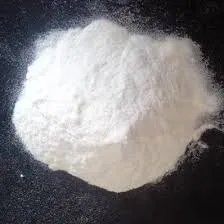
Sep . 06, 2024 03:40 Back to list
High-Performance Mortar Bonding Additive for Enhanced Adhesion
The Importance of Mortar Bonding Additives in Construction
In the construction industry, the quality of materials used plays a pivotal role in the longevity and durability of structures. One essential component often overlooked is mortar, a mixture that serves as the adhesive between masonry units such as bricks and blocks. To enhance the performance of mortar, bonding additives have been developed, significantly improving its adhesive properties and overall effectiveness.
Mortar bonding additives are chemical substances that are mixed with traditional mortar to improve its bonding capabilities, flexibility, and resistance to environmental factors. These additives include polymers, latex, and other synthetic materials specifically designed to enhance the performance of mortar in various applications. When mixed with mortar, these additives create a stronger bond between the masonry units, reducing the likelihood of cracks and structural failures over time.
One significant advantage of using mortar bonding additives is their ability to improve adhesion in challenging conditions. Traditional mortar can sometimes struggle to bond effectively in wet or humid environments, which can lead to reduced strength and increased vulnerability to weather-related damage. However, the incorporation of bonding additives allows the mortar to maintain its grip, ensuring that masonry units are securely affixed even when exposed to moisture.
mortar bonding additive

Moreover, mortar bonding additives contribute to the flexibility of the mortar, allowing it to accommodate slight movements within the structure. Buildings settle over time, and temperature fluctuations can cause materials to expand and contract. Mortar without bonding additives may become brittle and crack under these conditions. In contrast, modified mortars remain more resilient, reducing the risk of damage and prolonging the lifespan of the structure.
Furthermore, the use of bonding additives can promote faster installation processes. Modified mortars tend to have improved workability, allowing contractors to apply them more easily and efficiently. This can lead to reduced labor costs and shorter project timelines, which are critical factors in a competitive construction industry.
In addition to mechanical benefits, many bonding additives offer enhanced performance against environmental adversities. They can improve the resistance of mortar to chemicals and pollutants, making them ideal for use in harsh conditions such as industrial settings or coastal environments. This resistance not only helps preserve the integrity of the mortar but also enhances the overall performance and aesthetics of the building.
In conclusion, the role of mortar bonding additives in construction cannot be underestimated. They not only enhance the adhesive properties and durability of mortar but also improve its flexibility and resistance to environmental challenges. For builders and contractors looking to ensure their structures withstand the test of time, incorporating high-quality mortar with bonding additives is a wise investment. As the construction industry continues to evolve, the focus on using advanced materials like bonding additives will only grow, leading to safer, more resilient buildings that serve their purpose for generations to come.
-
Versatile Hpmc Uses in Different Industries
NewsJun.19,2025
-
Redispersible Powder's Role in Enhancing Durability of Construction Products
NewsJun.19,2025
-
Hydroxyethyl Cellulose Applications Driving Green Industrial Processes
NewsJun.19,2025
-
Exploring Different Redispersible Polymer Powder
NewsJun.19,2025
-
Choosing the Right Mortar Bonding Agent
NewsJun.19,2025
-
Applications and Significance of China Hpmc in Modern Industries
NewsJun.19,2025







